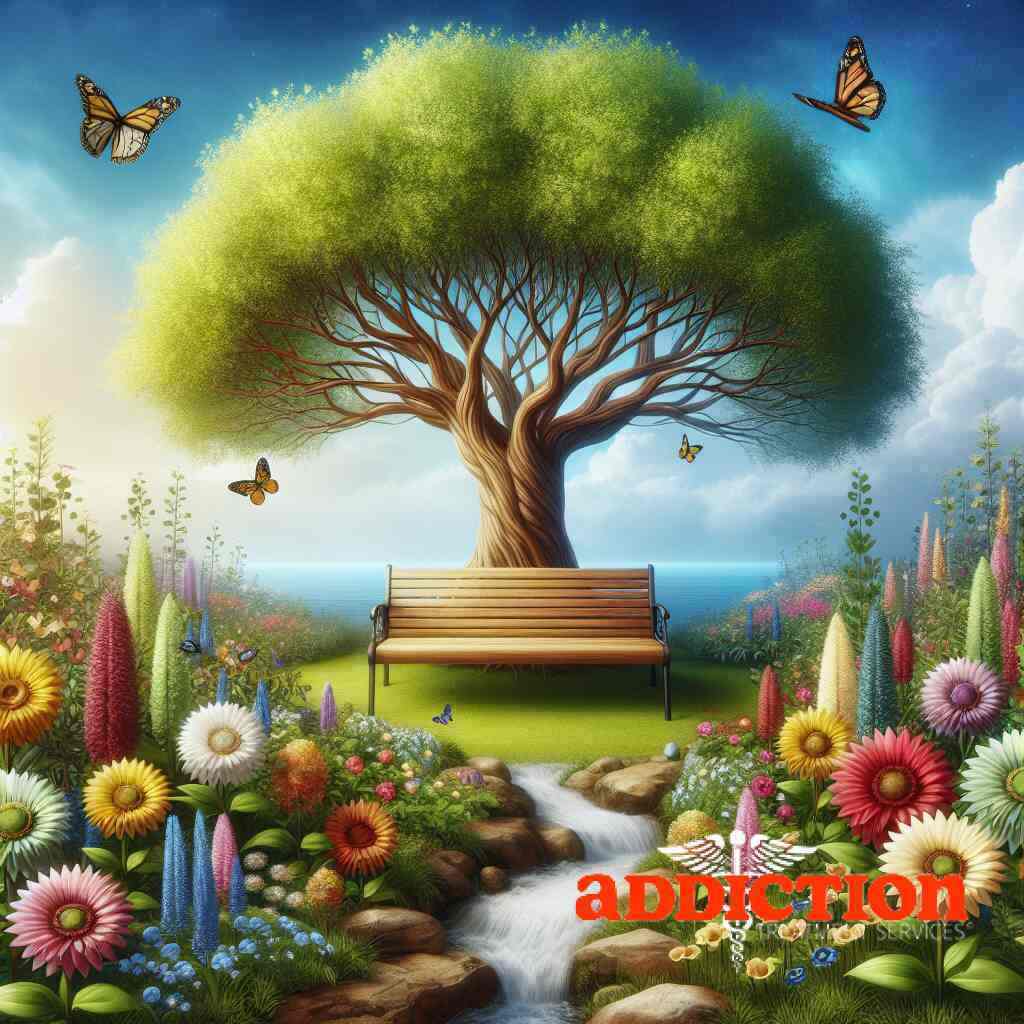 Posted On: 09/04/2024
Posted On: 09/04/2024Understanding Neonatal Abstinence Syndrome and Maternal Substance Use Disorder
Overview of Neonatal Abstinence Syndrome
Neonatal Abstinence Syndrome (NAS) is a group of conditions caused when a baby withdraws from certain drugs he’s exposed to in the womb before birth. NAS is most commonly the result of a mother’s opioid use during her pregnancy, leading to symptoms in the baby that can include tremors, excessive crying, poor feeding, and sleep disturbances. The withdrawal symptoms the infant experiences post-birth are both heartbreaking and challenging, necessitating specialized care and often medication-assisted treatment to mitigate the severity of these symptoms. Understanding NAS is crucial for both medical professionals and expectant mothers in grasping the seriousness of substance use during pregnancy.
The Impact of Substance Abuse During Pregnancy on the Baby
Substance abuse during pregnancy doesn’t just affect the mother; it can have lasting impacts on the baby’s health and development. The use of opioids, alcohol, nicotine, and other substances can lead to a host of problems for the newborn, including low birth weight, developmental delays, and learning disabilities. Early detection and intervention are critical in minimizing these risks, highlighting the necessity for pregnant women with substance use disorders to seek prompt and effective treatment.
Understanding Maternal Substance Use Disorder
Maternal Substance Use Disorder is a complex condition entailing the compulsive use of substances despite adverse consequences. It is characterized by an inability to control substance use, leading to a series of behavioral, physical, and psychological problems. This disorder can profoundly affect a mother’s capacity to care for her child, influencing her parenting skills and the emotional and physical well-being of her child. Effective management of this disorder requires a comprehensive approach, including medication-assisted treatment, counseling, and support systems to ensure both mother and child can achieve better health outcomes.
The Legal and Social Implications for Mothers
The legal and social ramifications for pregnant women who use substances can be severe. As mentioned, several states classify prenatal substance use as child abuse, with potential consequences including criminal charges, loss of custody, or forced treatment. This punitive approach often deters women from seeking the help they need, exacerbating the challenges of addiction recovery. Therefore, there’s a growing advocacy for treating substance use disorders in pregnant women as a health issue rather than a criminal one, emphasizing the importance of support, treatment, and compassion to foster better futures for both mothers and their children.
The Journey to Recovery: Comprehensive Addiction Treatment for Mothers
Addiction during pregnancy not only poses significant health risks to the unborn child but also presents a complex challenge for the expectant mother. Recognizing the dual necessity of addressing substance use disorder and ensuring the well-being of both mother and child, a tailored approach to treatment is essential. Addiction Treatment Services offers a pathway to recovery, emphasizing the importance of specialized programs designed to meet the unique needs of pregnant women and new mothers.
Detoxification Services for Pregnant Women
The initial step in treating addiction in pregnant women often involves drug detoxification, a medically supervised process designed to manage withdrawal symptoms safely. Due to the potential risks associated with withdrawal, like fetal distress or preterm labor, detoxification must be approached with utmost caution. Treatment centers equipped to handle the specific needs of pregnant women ensure that both the mother’s and the baby’s health are monitored closely throughout the detox process, utilizing medications that are safe for use during pregnancy when necessary.
Medication-Assisted Treatment for Pregnant Women
For opioid-dependent pregnant women, Medication-Assisted Treatment (MAT) offers a safer alternative to detoxification, helping to reduce withdrawal symptoms and lower the risk of relapse. MAT involves the use of medications, such as methadone or buprenorphine, along with counseling and behavioral therapies. This integrated approach not only addresses the physical aspects of addiction but also supports the psychological recovery process, making it a critical component of comprehensive addiction treatment programs for mothers.
Residential Treatment Facilities for Mother and Child
Access to residential treatment facilities for mothers and infants provides an invaluable resource for mothers seeking to overcome substance use disorders. These specialized facilities offer a safe, supportive environment where mothers can reside with their infants while receiving intensive treatment. The availability of childcare within the facility allows mothers to participate in therapy sessions, educational workshops, and peer support groups, focusing on their recovery without the added stress of arranging childcare. This setting not only facilitates the mother’s journey to sobriety but also fosters the development of healthy parenting skills and bond formation with their child.
Outpatient Treatment Options for New Mothers
For many new mothers, outpatient treatment presents a flexible and effective option for addiction recovery. Outpatient programs allow women to live at home and care for their children while attending scheduled treatment sessions. Services may include individual counseling, group therapy, family therapy, and support groups tailored to address the specific challenges faced by postpartum women. Outpatient treatment near me for new mothers ensures that recovery support is accessible, helping mothers build a sober lifestyle within their community.
Behavioral Health Services for Addicted Mothers
Beyond addiction treatment, many mothers require ongoing support for co-occurring mental health issues, such as depression or anxiety, which may exacerbate substance use disorders. Behavioral health services for mothers struggling with addiction provide a continuum of care that addresses both addiction and mental health, offering therapies like cognitive-behavioral therapy (CBT) and dialectical behavior therapy (DBT). This holistic approach ensures that mothers receive the comprehensive care needed to heal and build a foundation for a healthy, sober life with their children.
Through specialized care and support, mothers battling addiction can navigate the path to recovery, ensuring a healthier future for themselves and their babies. By embracing comprehensive addiction treatment services, mothers are empowered to overcome the challenges of substance use disorders, fostering an environment of hope and resilience for their families.
Support Systems and Early Intervention
Early Intervention in Substance-Exposed Newborns
Early intervention plays a pivotal role in mitigating the immediate and long-term consequences of substance exposure in newborns. The goal is not only to address withdrawal symptoms through appropriate medical care but also to ensure the baby’s developmental needs are met. Early intervention in neonatal substance exposure programs is designed to provide infants with a nurturing start, emphasizing the importance of supportive care that includes both the physical and emotional health of the baby. Through timely and responsive care, these programs aim to reduce the impact of prenatal substance exposure and promote healthy development.
Addiction Recovery and Family Support Services
The journey to recovery for mothers with substance use disorders encompasses more than just the individual; it extends to the entire family unit. Family support services are vital in providing a stable environment conducive to recovery. These services offer counseling, educational resources, and supportive groups that aim to strengthen family relationships and coping mechanisms. Integrating family into the recovery process allows for a comprehensive approach that addresses the complex dynamics involved, ensuring that mothers have the support network necessary to navigate challenges and foster a positive home environment for themselves and their children.
Maternal Addiction Support Programs
Maternal addiction support programs are essential in providing targeted assistance to women facing the unique challenge of substance use during and after pregnancy. These programs offer a range of services, including comprehensive addiction treatment programs for mothers, psychological support, and assistance in navigating the legal and social hurdles that can arise. By focusing on the specific needs of pregnant women and new mothers, these programs empower women to seek treatment and support in a non-judgmental setting. This holistic approach not only addresses substance use disorder but also works to improve the overall well-being of the mother and her relationship with her child.
Relapse Prevention for Postpartum Women
Relapse prevention is a crucial component of recovery, especially for postpartum women. This period can be particularly vulnerable due to hormonal changes, sleep deprivation, and the stress of caring for a newborn. Relapse prevention for postpartum women involves creating a personalized plan that addresses potential triggers, developing coping strategies, and establishing a supportive network. Programs may include therapy, support groups, and educational workshops that focus on building resilience and maintaining sobriety. Ensuring that mothers have access to continuous support and resources is key to preventing relapse and promoting a healthy, drug-free lifestyle for both mother and child.
Navigating Legal Issues and Ensuring the Best Outcome for Mother and Child
Understanding State Laws and Regulations
The legal environment surrounding substance use during pregnancy is complex and varies significantly across states. In the United States, the legal system has increasingly recognized the need to address prenatal substance exposure, leading to the development of various laws and regulations aimed at protecting both the mother and child. This landscape can include states where substance use during pregnancy is classified under child welfare laws, potentially leading to criminal charges, mandated treatment, or other interventions. Understanding state laws and regulations is crucial for pregnant women dealing with substance use disorders, healthcare providers, and social workers to navigate these legalities appropriately. By staying informed about the state-specific nuances, professionals can better guide mothers through their recovery journey, ensuring they receive the necessary support while upholding the law.
Protecting Parental Rights While Ensuring Child Safety
Balancing the protection of parental rights with the safety and well-being of the child presents a significant challenge in cases of prenatal substance exposure. In states where substance use during pregnancy is considered a form of child abuse or neglect, mothers can face investigations by child protection services, which may lead to interventions ranging from mandated addiction treatment to, in extreme cases, termination of parental rights. The legal system and child welfare agencies must approach these situations with a nuanced understanding, considering the best interests of the child while also protecting the mother’s rights to treatment and recovery. Efforts aimed at keeping the family unit intact, such as providing comprehensive addiction treatment programs for mothers, should be prioritized whenever possible to encourage a safe and healthy environment for both mother and child.
The Role of Mandatory Reporting and Child Protection Services
In nearly one-quarter of U.S. states, healthcare providers are required by law to report suspected prenatal drug exposure to child protection services. This mandatory reporting is intended to ensure that newborns are safe and that mothers receive the necessary support and intervention. However, these policies also raise concerns about the potential for stigmatization and the fear among pregnant women of seeking necessary prenatal care or addiction treatment. Child protection services play a pivotal role in assessing the family’s situation, providing or arranging for appropriate interventions, and monitoring the well-being of the child. Their involvement should ideally be part of a broader, supportive approach that includes access to treatment for substance use disorders and mental health support, safeguarding the health of both the mother and her newborn.
Collaborative Approaches Between Healthcare Providers and Legal Systems
The complexity of dealing with prenatal substance exposure requires a collaborative approach that brings together healthcare providers, legal systems, and child protection services. Such partnerships are crucial in developing coordinated care plans that address the medical, legal, and social needs of both the pregnant woman and her baby. By working together, these entities can develop strategies that encourage pregnant women to seek treatment, ensure that newborns receive the necessary care, and support families in navigating the legal system. This collaborative framework fosters a compassionate environment where mothers feel supported in their recovery journeys and are more likely to achieve positive outcomes for themselves and their children.
Embracing New Beginnings: A Conclusion
The Importance of Comprehensive Care
In addressing the complex and multifaceted nature of substance use disorders, particularly in the context of pregnancy and postpartum recovery, the importance of comprehensive care cannot be overstated. Comprehensive care encompasses a broad array of support and treatment services that address not only the physical aspects of addiction and withdrawal but also the psychological, emotional, and logistical challenges that mothers face in recovery. Offering a wide-ranging suite of services, from detoxification services for pregnant women to specialized psychotherapy for addiction, ensures that every angle of the recovery process is supported, providing a solid foundation for the journey ahead.
Empowering Mothers for a Healthier Future
Empowering mothers requires more than just treating the symptoms of substance use disorder; it requires addressing the root causes of addiction, providing the tools and resources for coping with stress, and encouraging personal growth and self-care. Programs that focus on maternal substance use disorder support work to instill a sense of agency in mothers, helping them to see themselves as capable of overcoming the challenges of addiction and capable of providing a safe, nurturing environment for their children. Building confidence through supportive counseling, educational resources, and peer support groups helps mothers embark on a path toward a healthier and more fulfilling future, not just for themselves but also for their children.
Strengthening the Bond Between Mother and Baby Post-Treatment
The post-treatment period is a critical time for both mothers and their babies as they adjust to life together and navigate the early stages of their relationship. Strengthening the bond between mother and baby is an essential focus of post-treatment care, with programs designed to facilitate attachment, improve parenting skills, and support healthy interactions. Support for addiction in pregnancy and beyond, including residential programs that allow mothers to live with their babies while receiving care, lays the groundwork for strong, positive relationships that are vital for the emotional and physical well-being of both mother and child.
A Look at Success Stories and the Path Forward
Success stories of mothers who have navigated the path of recovery from substance use disorder are a powerful testament to the resilience of the human spirit and the efficacy of comprehensive addiction treatment programs. These stories serve not only as a beacon of hope for those still struggling but also as a reminder of the importance of accessible, compassionate care for mothers and their babies. The path forward requires a continued commitment from healthcare providers, policymakers, and communities to support addiction and mental health support post-birth, ensuring that every mother has the opportunity to achieve sobriety and every baby a chance to thrive in a stable, loving environment. By embracing new beginnings and focusing on the health and happiness of both mothers and their children, we can build a stronger, healthier future for all.
Frequently Asked Questions
Question: What is Neonatal Abstinence Syndrome, and how do Addiction Treatment Services support mothers and babies in this condition?
Answer: Neonatal Abstinence Syndrome (NAS) is a condition in newborns characterized by withdrawal symptoms as a result of exposure to substances, especially opioids, during pregnancy. At Addiction Treatment Services, we offer comprehensive addiction treatment for mothers, including specialized programs that cater to both the physical and emotional needs of the mother and the newborn. Our services include medication-assisted treatment for pregnant women, behavioral health services for addicted mothers, and infant withdrawal treatment programs. By providing access to these targeted treatments, we aim to ensure a healthier start for babies and a supportive recovery path for mothers, mitigating the effects of substance abuse during pregnancy.
Question: In the blog post ‘What Happens to the Mother When a Baby Is Born Addicted?’, the impact of substance abuse during pregnancy is discussed. Can you elaborate on the addiction treatment services near me for mothers and how these programs can help?
Answer: Within the context of maternal substance use disorder and its aftermath on newborns, Addiction Treatment Services is here to offer a bridge to recovery. We provide a user-friendly directory that helps mothers locate addiction treatment services near them, offering a range of programs tailored to the unique challenges faced during and after pregnancy. Whether looking for detoxification services for pregnant women, outpatient treatment options for new mothers, or residential treatment facilities for mothers and children, our directory simplifies the search. By connecting you with local, reputable treatment centers, we ensure you have access to the care you and your baby need for a stable, healthy future.
Question: How does the recovery process for mothers and babies work, especially for those dealing with opioid withdrawal in newborns?
Answer: The recovery process for mothers and babies, particularly when dealing with opioid withdrawal in newborns, is carefully structured to address both immediate and long-term health concerns. At Addiction Treatment Services, we advocate for a holistic recovery approach that includes medication-assisted treatment to ease withdrawal symptoms in newborns and comprehensive addiction treatment for mothers. This approach is complemented by early intervention in substance-exposed newborns and ongoing support to prevent relapse in postpartum women. Through personalized treatment plans, we strive to ensure that mothers receive the mental health services and substance misuse counseling necessary for recovery while their babies receive specialized care to address and mitigate withdrawal symptoms.
Question: Can you describe the outpatient treatment options for new mothers through Addiction Treatment Services and how these facilitate recovery?
Answer: Outpatient treatment options for new mothers through Addiction Treatment Services are designed to offer flexibility while providing robust support for recovery from substance use disorders. Recognizing the demands new mothers face, our outpatient programs include individual counseling, group therapy, family therapy, and support groups, all tailored to the specific circumstances and needs of postpartum women. These programs allow mothers to live at home and continue caring for their children, integrating treatment into their daily lives. Key features include relapse prevention strategies, co-occurring disorders treatment for new mothers, and access to a broad network of recovery support services, facilitating a journey to sobriety that doesn’t detract from their responsibilities as new parents.
Question: How do Addiction Treatment Services integrate family support into recovery programs for mothers with substance use disorders?
Answer: Addiction Treatment Services places a significant emphasis on the integration of family support within recovery programs for mothers with substance use disorders. We understand that the family unit plays a pivotal role in the recovery journey, influencing outcomes for both the mother and her child. Our approach includes offering addiction recovery and family support services designed to strengthen family dynamics, improve communication, and provide education on substance misuse and its impact. By fostering an environment of understanding and support, we help families navigate the complexities of addiction recovery together, ensuring that mothers have a solid support system in place as they work towards sobriety and improved well-being for themselves and their children.




